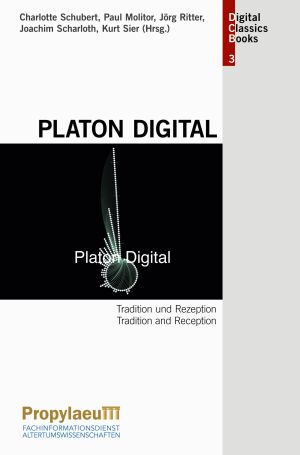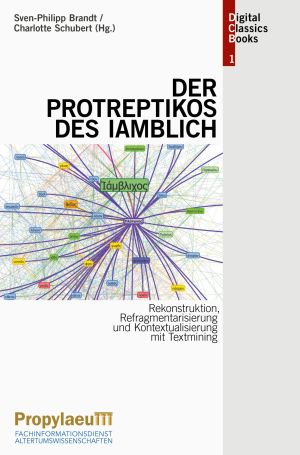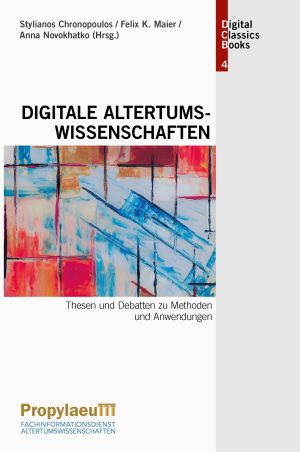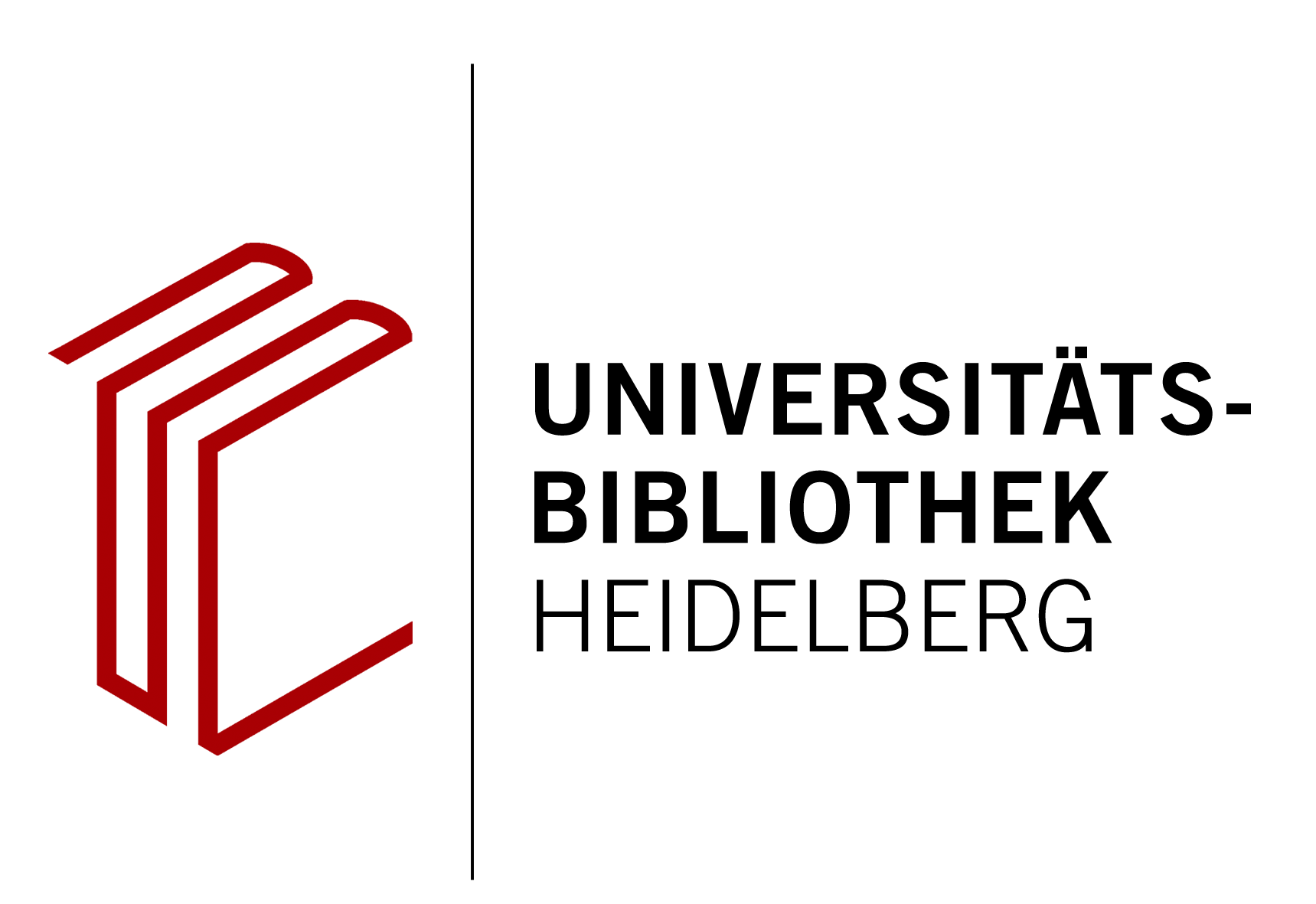Schubert, Charlotte
Platon Digital: Tradition und Rezeption
Platon ist nach Homer der antike Autor mit der reichhaltigsten Rezeption vom Altertum über das Mittelalter bis in die Neuzeit. Gleichwohl und gerade aus diesem Grund ist diese bisher allenfalls bruchstückhaft aufgearbeitet worden. Die Autoren versuchen, diesem alten Ziel geisteswissenschaftlicher Forschung auf neuen Wegen näherzukommen, indem sie eine informationswissenschaftliche Perspektive auf Platon und seine Rezeption anwenden. Dazu sind innovative Methoden der Paraphrasensuche entwickelt worden, um diese auch als Methode altertumswissenschaftlich und kulturwissenschaftlich interessierter Forschung zu etablieren.
Der Protreptikos des Iamblich: Rekonstruktion, Refragmentarisierung und Kontextualisierung mit Textmining
Der vorliegende Sammelband vereint verschiedene Aufsätze, die mit den Methoden des Textmining Iamblichs Protreptikos analysieren und dadurch neue Erkenntnisse für den Forschungsdiskurs über dessen Zusammenhänge mit dem aristotelischen Protreptikos und mit den Werken Platons liefern.
Iamblichs Protreptikos befasst sich mit der Lehre des Pythagoras und setzt sich zu diesem Zweck mit den philosophischen Strömungen der klassischen Zeit auseinander. Entsprechend viele Zitate jener Philosophen sind in diesem Werk zu finden. Die hier verwendeten Textminingtools des Portals eAQUA sind die Zitatanalyse und die Kookkurrenzanalyse. Beide Tools geben einen vielversprechenden Einblick in die Zitationspraxis Iamblichs.
Digitale Altertumswissenschaften:: Thesen und Debatten zu Methoden und Anwendungen
Dieser Sammelband analysiert unterschiedliche Prozesse in den Digitalen Altertumswissenschaften für Wissenschaftler, die sich bisher noch nicht intensiv mit diesem Thema auseinandergesetzt haben. Dabei handelt es sich um eine selektive Bestandsaufnahme zu einzelnen zentralen Entwicklungen und Problemfeldern. Auf diese Weise erhält der Leser einen instruktiven Einblick in verschiedene Debatten, die ihn wiederum andere, hier weniger angesprochene Themen schneller verstehen und erfassen lassen. Neben Erörterungen grundsätzlicher Sachfragen und Tendenzen (neue Arbeitsmethoden, digitales Publizieren, Arbeiten mit Datenbanken und Informationssystemen) vereinigt der Band auch eine paradigmatische Diskussion zu den digitalen Editionen, um bestimmte Spezialfragen zu präsentieren und damit verbundene Debatten exemplarisch für die allgemeine Diskussion über Digitalisierung in den Altertumswissenschaften nachzuzeichnen. Gerade in einem oftmals schwer zu überblickenden fließenden Prozess, bei dem viele gleichzeitige Entwicklungen sich überschneiden, versteht sich der Band als Angebot, zwischenzeitliche Ergebnisse, Errungenschaften, Potentiale oder Sackgassen zu thematisieren und auf diese Weise Orientierung zu bieten.









